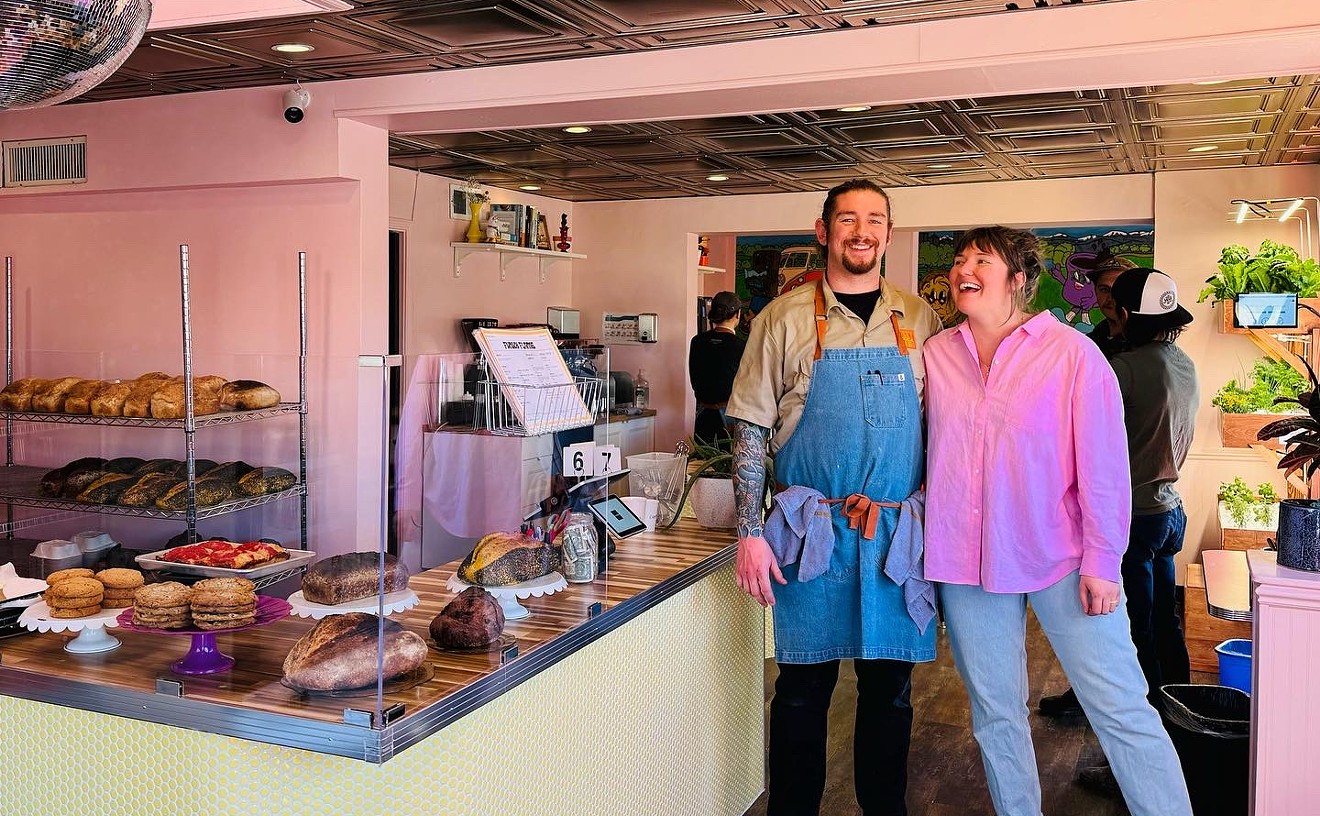Dreams became reality last year, when the siblings bought a farm in Brighton where hoped to produce vegetables to supplement their imported fish. To help, they called on Nobi Sakai, a sushi chef turned farmer, and Howard Ochsner, a former Coors beer-tester who'd managed the Den Farm property under its previous owners.
The group quickly set to work tilling the fields, and last year, the farm provided many vegetables for specials at the restaurants, with chefs planning menus around the fresh ingredients. But the Kizaki brothers also wanted to give chefs and restaurant employees a reason to gather at the farm, and so they created other enticing reasons to come to Brighton. "Toshi's vision was to make it more than just a farm -- this is a community," says Ellen Marchman, who does public relations for the restaurants. Last summer, she recalls, several employees made the trip up to treat their kids to an afternoon playing with the goats, which are just on the grounds for petting purposes, or to chase around the chickens, which are just there to lay eggs.
But last summer the brothers also hatched an idea to cull more produce from the grounds year-round, and in November, the farm broke ground on a greenhouse that will revolutionize what the property can grow for the restaurants.
This is no ordinary greenhouse. "The main problem with greenhouse design is glass," Sakai explains. "It really only works in one season, and it needs a supplemental energy source to warm it in the winter and cool it in the summer. We built a passive solar green house. There's no natural gas source necessary. We use just enough to run a fan." That cuts down costs: "If this were glass, we couldn't afford it," Yasu points out.
The farmers worked with Synergistic Building Technologies, a Boulder-based builder focused on energy efficiency, to design the space, a sealed-off building with glass windows that uses a fan to cycle air underground -- heating it in the winter and cooling it in the summer -- in order to maintain a constant temperature and humidity in the space year-round. Before working on the Den project, that company also built a prototypical greenhouse for Cure Organic Farm and had great results: Temperatures in Boulder dropped to -18° F last winter, but the temperature inside the greenhouse never dropped below 50°; Ochsner says this one may never get below 60°. The Den Farm greenhouse is significantly larger than the one at Cure, and it's also expandable -- Ochsner says they can pop out the windows and walls and add onto it in the future. For now, though, they're putting the finishing touches on the build-out and putting it to work."The field is the main meditation right now," says Sakai. In the next two weeks, the farmers will start about 1,000 plants with the intent of transplanting them into the main field by Mother's Day. But in that time, they'll also test the limits of the greenhouse, attempting to stabilize the environment so that "it's not Colorado in here, it's the tropics," says Sakai.
Ultimately, that will allow the farmers to plant some pretty incredible produce: Sakai cites plans for citrus trees, banana trees and dwarf avocados; a more extensive list from Marchman includes a couple of types of shiso; a slew of peppers, strawberries, raspberries; and many types of squash and lemongrass, among other crops.
So what, exactly, does that mean for the restaurants, besides a local source for ingredients that normally have to be imported? An early harvest this year, since starter plants will be eight to ten inches tall by the time they go in the ground. But the team also looks forward to what the greenhouse will provide after the warm months. "The summer harvest dries up in September, and we hope to keep having harvests from there," says Sakai. "I'm excited for January and February, when it's cold but we're still harvesting."
And Yasu looks forward to what this means for the whole community. "The customers are the most appreciative," he says. "They're always asking where our fish and vegetables are from. Customers can come here and see what we're doing. It will really bring everyone together."










